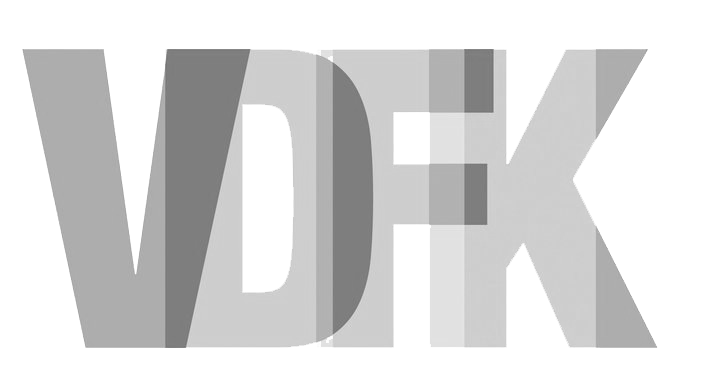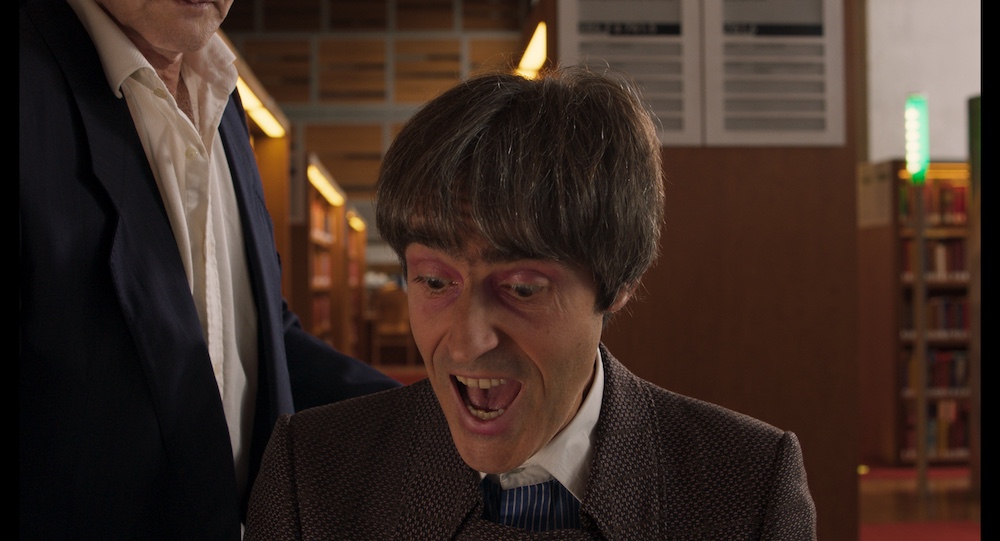The First Films and the New Team of the Berlin Critics’ Week 2022
Imagining dreams as transmissions and radio waves. Fetish as a footnote of film history. A caricature that rebels against the present day. A protest spectacle of colours and bodies. And a collaboration between generations. We are excited to announce the first films and the first guest curators of the 8th Berlin Critics’ Week.
In their feature debut “The Dream and the Radio,” co-directors Ana Tapia Rousiouk and Renaud Després-Larose let people become one with images and sounds, while appearing onscreen as the film’s protagonists themselves. Their characters are shaken up by the arrival of the mysterious Raoul Debord, a self-proclaimed revolutionary who plans an attack on the city’s radio stations. A film that unlearns and reinvents the rules of cinema, drifting through the nights with jazzy lightness. Renaud Després-Larose has sparked discussions twice before in our programme with his images: as a cinematographer, he has worked several times with the Canadian visionary Olivier Godin, whose films “Waiting for April” and “Dracula Sex Tape” we presented and discussed with great pleasure.
If Venus had worn shoes, would they have been Nikes? In “Venus in Nykes,” Brazilian filmmaker André Antônio celebrates the power of reinterpretation, queer cinema, fetish and, above all, ironic self-reflection. The result is a delicate balancing act—between performance and experimental film; between impassioned montage and the dismantling of cinema history—whose goal is always to interrogate the ways identity is constructed, between social stigmas and self-determination. Through his film collective, surto & deslumbramento, Antônio has been poking fun at the self-seriousness and heteronormativity of numerous Brazilian independent films in recent years.
In her cinematic caricature “Edouard and Charles,” former French film critic Pascale Bodet uses absurdist comedy as a vehicle to comment on artist personas as well as the blind spots of history. Inspired by the relationship between Charles Baudelaire and Édouard Manet, she transposes fin-de-siècle characters and ideas into contemporary Paris, exploring notions of colonialism, racism, artistic vanity, the fragility of friendships, and the superficiality of contemporary art institutions. Serge Bozon accompanies the action as a naive clown with a hilariously discomfiting presence. Bodet’s film breaks rules and political codes, creating a historical fantasy that tests just how much tension cinema can withstand.
Over the past ten years, the avant-garde collective Los Ingrávidos from Mexico, sprung from a manifesto, have made over 300 films that resolutely oppose the aesthetics of Mexican television and mainstream cinema. They have firmly established themselves as rising stars in the international festival landscape with their work. “Notes for Déjà Vu” is one of the group’s latest works, bringing together footage of protests with Jonas Mekas’s words and his musings on cinematic memory. The short experimental film deals with the question, amongst others, of what nostalgia has to do with the political, as well as with asking how the documentary gesture inherent to their images relates to the ambitions of avant-garde cinema. Recalling several of their past works, the collective virtuously explore the clash of analog images with digital artefacts.
For the past three years, the Berlin Critics’ Week has organised collaborations with international voices of cinema, most recently with guest programmers of international film festivals. This year, against the backdrop of a faltering cinema culture, we emphasise the role of filmmakers as decision-makers who will make the next crucial steps possible through their visions. We are breaking with the principle of carte blanche—instead we have invited several directors to create programmes and then discuss the films and their combination with us in Berlin after the screenings. Our first collaborative programme will be curated by two representatives of political documentary cinema from different generations: Ute Adamczewski and Želimir Žilnik. With her recent feature-length film “Status and Terrain”, Ute Adamczewski articulated a sharp critique on German political history; at the same time, her film approached the structure of society and history through urban space, as in her previous shorts. She is currently teaching at the University of Hildesheim on the question “What we want to expect from documentary film?” Želimir Žilnik was considered one of the most radical filmmakers of the Yugoslavian Black Wave of the 1960s, and remains one of Serbia’s most important artistic voices. Through his diverse approach to the documentary form over several decades, he has opened up fundamental questions about the nature of documentary film in relation to the power of political systems.
The Berlin Critics’ Week 2022 will take place from February 9 to 17. The film programme begins on Thursday, February 10, at Hackesche Höfe Kino.
The Berlin Critics’ Week will be based on a collective Artistic Direction from 2022
For eight years, the Berlin Critics’ Week has brought together remarkable films from the international cinema scene in new constellations, in order to initiate debates on the politics of cinema and to question the routines of the festival landscape. After the project was founded by film critics Dunja Bialas, Jennifer Borrmann, Frédéric Jaeger, Claus Löser and Dennis Vetter, Frédéric Jaeger took over the artistic direction of the event in 2014. He handed it over to Dennis Vetter in 2020, who established a collective artistic direction in 2021. He collaborates with Amos Borchert, Elena Friedrich, Istvan Gyöngyösi and Petra Palmer from the 2022 festival edition.
Amos Borchert works as a freelance programmer and festival organiser. He is passionate about preserving the anachronist spirit of video stores and also runs a film club. He organises the GEGENkino Festival as well as the Kurdish Film Days in Leipzig, is a co-founder of the video art exhibition paradoks, and a member of the migrant self-organisation DOZ e.V.
Elena Friedrich is a filmmaker specialising in documentary and experimental film. She also works in film production and teaches film. Her projects explore the intersections of cinema, visual art and performance, and they are based on interdisciplinary, collaborative ways of working. She is currently making her first feature-length film, “The Consequences of Alexander
”.
Istvan Gyöngyösi is a curator, writer, editor and filmmaker. He curated film, media art and music at Zeitfluss Festival Salzburg, Sommerszene Salzburg, Diagonale Graz and Donaufestival Krems, among others. Since 2013, he has been an editorial member of Revolver, Zeitschrift für Film. In 2018, his film “Making Off (Germania Dreamland)” was nominated for the German Short Film Award.
Petra Palmer is a film curator focusing on experimental, ethnographic, and documentary film forms, as well as Spanish film history. She was the program director of the Japanese Film Festival Nippon Connection, worked at the goEast Film Festival, and was the project manager at the Jewish Film Festival Berlin Brandenburg.
Dennis Vetter works as a freelance film critic, moderator, programmer and teaches film. He has written about cinema for more than 30 publications, including kolik.film, taz, cléo Journal and Senses of Cinema. He is a board member of the German Film Critics Association and a founding member of the Woche der Kritik, for which he has served in the Selection Committee since 2014.
The film selection of the Woche der Kritik is curated by an international committee of mainly film critics, based on a system of rotating members. The film program for the 2022 edition is curated by Dunja Bialas, Victor Guimarães, Istvan Gyöngyösi, Lucía Salas and Dennis Vetter. Guest programs will be developed in collaboration with Ute Adamczewski, Želimir Žilnik and other international directors.

